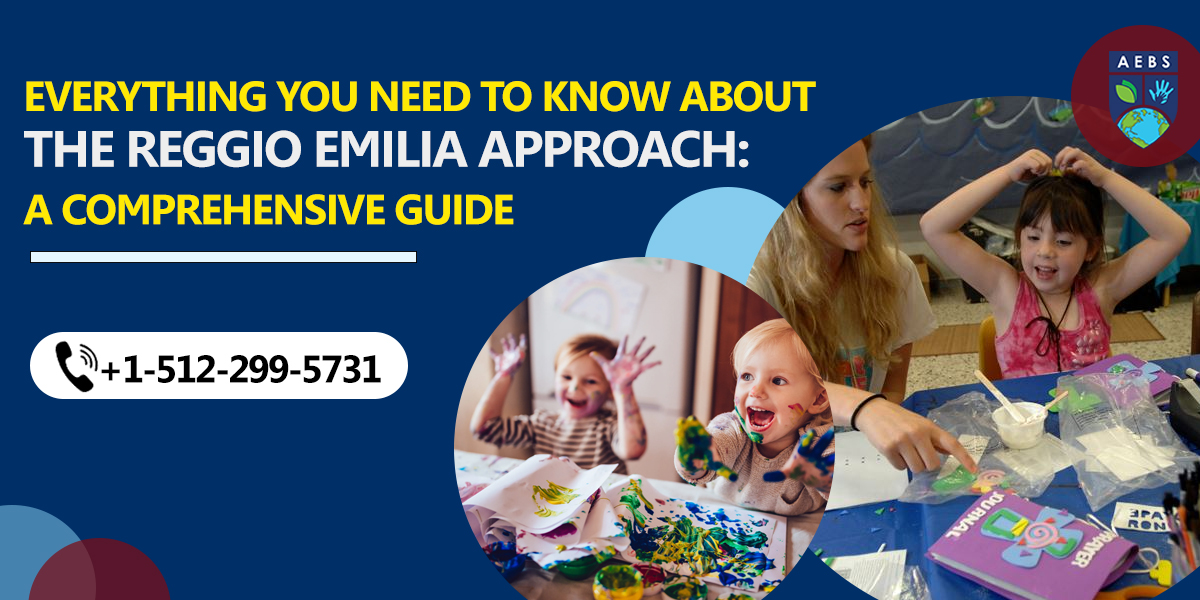The Reggio Emilia approach to the education of young people is a unique and imaginative approach that has recently gained popularity. It started in the city of Reggio Emilia in Italy and is based on the belief that children are capable and capable students who should be actively involved in their own learning. In this article, we will take a closer look at the Reggio Emilia method, including its conceptual approach, core principles, and practical applications.
What is the Reggio Emilia Method?
The Reggio Emilia approach is a pedagogical, child-centered way of thinking that places a strong emphasis on the importance of fostering interpersonal relationships, coordinated efforts, and creativity. It views children as active participants in their own learning and emphasizes the role of the environment in facilitating their development.
The Reggio Emilia Approach’s Critical Ideas
Numerous fundamental thoughts support the Reggio Emilia technique, including:
1. The Arising Educational plan
The educational plan under the Reggio Emilia approach is chosen by the kids’ advantages and needs instead of by the teacher or educational plan. This empowers a more versatile and responsive way to deal with discovering that can conform to the youngsters’ changing necessities and interests.
2. Project-Based Schooling
The Reggio Emilia technique stresses project-based learning. Long haul, inside and out projects that consider a superior understanding and association with the substance motivate youngsters to study and look at subjects of interest.
3. The role of the Environment
The Environment is viewed as a basic part of the educational experience in the Reggio Emilia approach. The actual space is painstakingly intended to be open and adaptable, with regular materials and assets that empower investigation and innovativeness.
4. Coordinated Effort
.A coordinated effort is a critical component of the Reggio Emilia approach, both among the youngsters and between the kids and instructors. Youngsters are urged to cooperate, share thoughts, and take part in productive exchanges to help their learning and advancement.
5. Documentation
Documentation is a basic part of the Reggio Emilia approach, as it considers reflection and examination of the educational experience. Instructors and kids are urged to record their encounters, perceptions, and reflections through various media, including photos, recordings, and composed notes.
Also, read about Why International Schools Are The Best Choice For Your Children?
Useful Utilizations of the Reggio Emilia Approach
The Reggio Emilia approach can be applied in various instructive settings, including preschools, kindergartens, and elementary schools. A portion of the critical pragmatic uses of the methodology include:
1. Create a Child-Centered Climate
In the Reggio Emilia approach, the current environment is carefully designed to be open, flexible, and welcoming. The constant use of materials and materials, such as wood, stone, and wood, creates a warm atmosphere that encourages exploration and imagination.
2. Allow Questions and Requests
The Reggio Emilia approach places a strong emphasis on inquiry-based and desire-based learning. Young people are encouraged to seek clarification on critical issues, research topics of interest, and explore their own lines of inquiry through project-based learning.
3. Develop Joint Efforts and Communication
Collaboration and openness are key elements of the Reggio Emilia approach. Teachers and children work together to create an environment in which students support social development, the ability to understand people on a deeper level, and language development.
4. Make a Book a Meditation Tool
Literature is a central part of the Reggio Emilia method, as it takes into account the thinking and analysis of the growing experience. Teachers and children can use the book.
To find out more, call +1-512-299-5731 or visit www.austinbilingualschool.com to find your nearest center.




